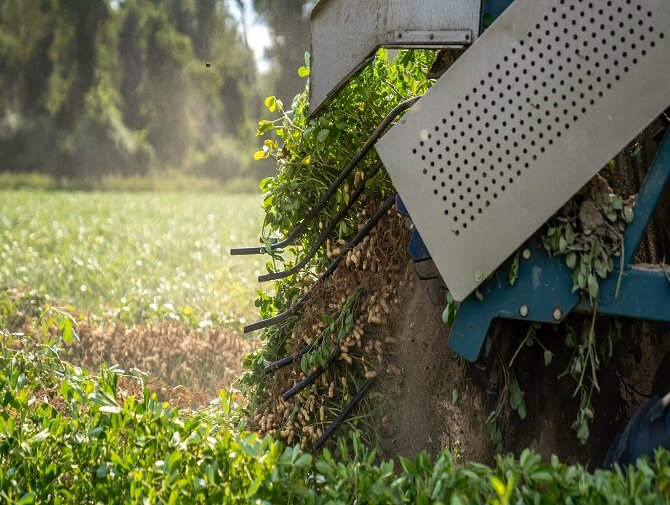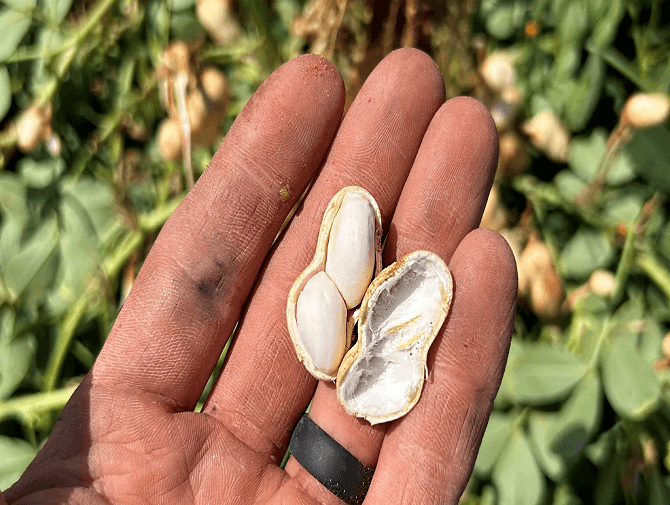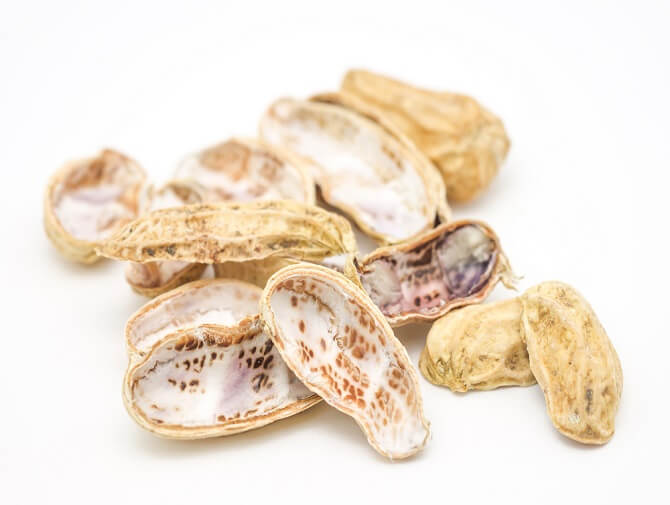

An ounce of information

Article by Pnut King
Published on 09/07/2023 in Peanut Farming
In terms of global production, India contributes 21% of the world's peanut production – a huge contribution, placing it second worldwide, with only peanut giant China contributing more.
Let’s talk peanut sustainability.
We believe that the peanut plant is a crucial crop.
And no, we’re not biased (although we do have a whole lot of love for such a small nut) – as peanuts are one of the top three oilseeds here in India.
In terms of global production, India contributes 21% of the world's peanut production – a huge contribution, placing it second worldwide, with only peanut giant China contributing more. In fact, India has the highest acreage for peanut growth in the world with a huge 50 lakh hectares acres, roughly the size of 2 countries (Belgium + Slovenia).
Putting out those sorts of numbers isn’t easy. It calls for a delicate blend of efficient and sustainable farming practices throughout the planting season.
And one of the simpler concepts behind the methods of the cultivation of groundnuts is meticulous timing.
Age-old farming wisdom suggests planting after the last frost. However, this isn't definitive. A number of different factors come into play that can dictate when is best to start planting – such as soil consistency, moisture conditions, and ambient temperature. These key conditions play a significant role in deciding on the optimal time for planting.
Now let’s explore something a little different.
GPS technology
Think back to a decade ago. GPS was mostly something we used to navigate our way back home or to find a new route to work to avoid the traffic. Who knew it would become a game-changer for peanut farming?
But the introduction of geotagging, a technique that uses GPS to associate specific locations with data, has revolutionised groundnut cultivation.
Geotagging enables precise farming, optimizing's every inch of the farmland and turning vast fields into precise, data-driven landscapes. It's almost like giving farmers a superpower – one that makes planting more efficient and makes our farms greener too.
Here's the scoop: Geotagging helps farmers know exactly when and where to plant their seeds, and helps them to sow the optimal quantity of seeds. And with the average yield of groundnuts per hectare being between 2,500kg and 2,700kg, every inch of land needs to be optimised to its full potential.
Straight rows, less fuel consumption, and a higher-quality yield – these are the direct benefits reaped from incorporating GPS technology into peanut farming. Meaning we get to enjoy a bumper harvest without burdening our wallets or the environment during the growing season.
A win for us, a win for Mother Earth.
The precision offered by GPS is particularly critical in no-till farming, a method that increases water and organic matter content in the soil and reduces erosion.
On the topic of water content, here’s a surprising fact: Every 1% increase in soil organic matter helps the soil hold a whopping 20,000 gallons more water per acre. That can make a huge difference for those thirsty peanut plants.
And in conditions where winds can cause soil erosion or affect the direction of sowing, the precision of GPS-guided farming becomes a game changer. The technology ensures accuracy in seed placement and farming operations, therefore helping to mitigate the adverse effects of unpredictable wind patterns.
But let's not forget, the journey towards sustainability in groundnut cultivation isn't solely a tech trail.
This road also winds through the fields of effective soil management.
This includes a multipronged approach that focuses on traditional methods and organic practices. For instance, crop rotation is a natural and effective method of preventing soil depletion, controlling pests and diseases, and improving crop productivity. By alternating the peanut crop with other crops, we can maintain and even enhance soil fertility.
Then there's the use of organic fertilisers, an age-old practice that not only enriches the soil with essential nutrients but also significantly reduces the dependence on synthetic chemicals. This approach not only boosts crop yields but also minimises harm to surrounding ecosystems.
And then of course, you have good old regular ploughing and stringent weed control – the classics! Utilizing all of these strategies helps to ensure that our soils stay happy and healthy, ready to churn out productive yields.
After all, the secret to a bountiful peanut crop lies within the soil itself. These sustainable farming techniques are like gifts that keep on giving. They not only cater to our crunchy cravings today but are also safeguarding the future of peanut farming.

And that means a steady supply of these tasty legumes for years to come Growing groundnuts is about much more than just producing the nuts. It's a dance between tradition and innovation, and a pledge to protect our precious environment. And with India being a giant in the peanut supplier world, adopting these sustainable practices isn't just good farming – it's a necessity for global peanut production and a salute to environmental conservation.
With over 17 years of experience in the peanut industry and numerous awards recognising his contributions, he founded Agrocrops in 2008, a leading global peanut company. His passion for peanuts drives his commitment to improving the industry for all stakeholders and promoting sustainability.
.png)
Published on 09/01/2023

Published on 08/25/2023
.jpg)
Published on 08/23/2023

Published on 07/26/2023
